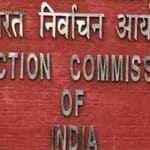As the West Bengal Legislative Assembly has passed a resolution changing the name of the state to Bengal in English and Bangla in Bengali, let us have a look at what led to it and what follows now:
Historical Background
- To the proponents, the name was seen as a vestige of the British era, which had an East Bengal to complement the West Bengal of today.
- The name West Bengal has been a major source of confusion for many, given that it is in the eastern part of India. The reason it is called West Bengal lies in the division of Bengal, as it was, in the early 1900s by the British.
- They divided Bengal into two parts on the basis of religion, with the eastern one having a predominantly Muslim population, while the western one had a bigger Hindu population.
- The Partition of Bengal, as it came to be known, was done by then Viceroy of India, Lord Curzon, in 1905.
- Although it was reunited in 1911 after a protracted struggle by not just Bengalis but Indians from other parts as well to that end, the schism remained, as did East Bengal and west Bengal.
- The differences resurfaced during the Partition of India in 1947, when East Bengal became East Pakistan.
- It would go on to achieve independence from Pakistan in 1971.
- However, West Bengal’s name remained unchanged since the time it came to be, even as states like Odisha and cities like Mumbai, Chennai and even West Bengal’s capital Kolkata shed their anglicized names and assumed their traditional and cultural identities. Therefore, this renaming was a long time coming.
Favour
- In 1971, East Pakistan became Bangladesh, and there was no ‘east’ left in Bengal, either inside or outside India- logically then, ‘west’ Bengal ceased to make sense.
- The name ‘Bangla’ had a historical and cultural background.
- State officials and politicians have long felt that a name starting with W puts it at a disadvantage at meetings and conferences where states are invited to make presentations in alphabetical order.
Opposition
- The BJP is opposing the name change because in it’s view the current name reflects the state’s troubled past of going through partition.
- There were concerns that the name Banga, pronounced in Bengali as ‘Bongo’ sounded like the name of a musical instrument, and that ‘Bangla’ was also the popular name for country liquor.
What follows now
- Consent of the Parliament is necessary to effect the name change. It requires the clearance of both the Houses of Parliament with a two-third majority.
- The Parliament must enact a law to change the name of the state.
- As per Article 3(a) of the Constitution, ” Parliament may by law alter the name of any State provided that no Bill for the purpose shall be introduced in either House of Parliament except on the recommendation of the President and unless, where the proposal contained in the Bill affects the area, boundaries or name of any of the States, the Bill has been referred by the President to the Legislature of that State, for expressing its views thereon…”
- While there is no strong reason to reject the proposal once the Assembly has passed a resolution to change the name, but theoretically the Centre can turn down the State’s proposal.
Procedure for changing the name of a state
- The process can be initiated by the state itself.
- However, according to Article 3, the Parliament also has the power to change the name of a state even if no such proposal comes from the state concerned.
- If initiated by the State Assembly-
- The State Assembly would first pass a resolution for such a change and then forward it to the Central Government.
- The Central Government will create a Bill which will be sent back to the State Legislature to express its views in a stipulated time fixed by the President.
- After the expiry of this time period, the President will recommend to introduce the Bill in the Parliament.
- Once introduced, the Bill will be passed, and the President would give his assent. Henceforth, the name of the state will get changed.
2. If initiated by the Parliament-
- Article 3 empowers the Parliament to make changes in the area, boundaries, territory, and names of states even if such a proposal does not come from the concerned state.
- For this purpose, the Central Government can simply get a Bill passed in the Parliament.
- However, the Constitution mandates that the State must be given an opportunity to express its views.
- Thus, first the Central Government will create a Bill, but this Bill can be introduced in the Parliament only on recommendation of the President.
- Before making such a recommendation, President would send this Bill to the concerned State Legislature and give it a fixed time to express its views on that matter.
- However, State’s view will have no impact on the fate of the Bill.
- Whether it says Yes or No, once the time given to it has expired, the President may recommend the Bill to be introduced in any House of the Parliament.
- Once passed, the name of the State stands changed.










